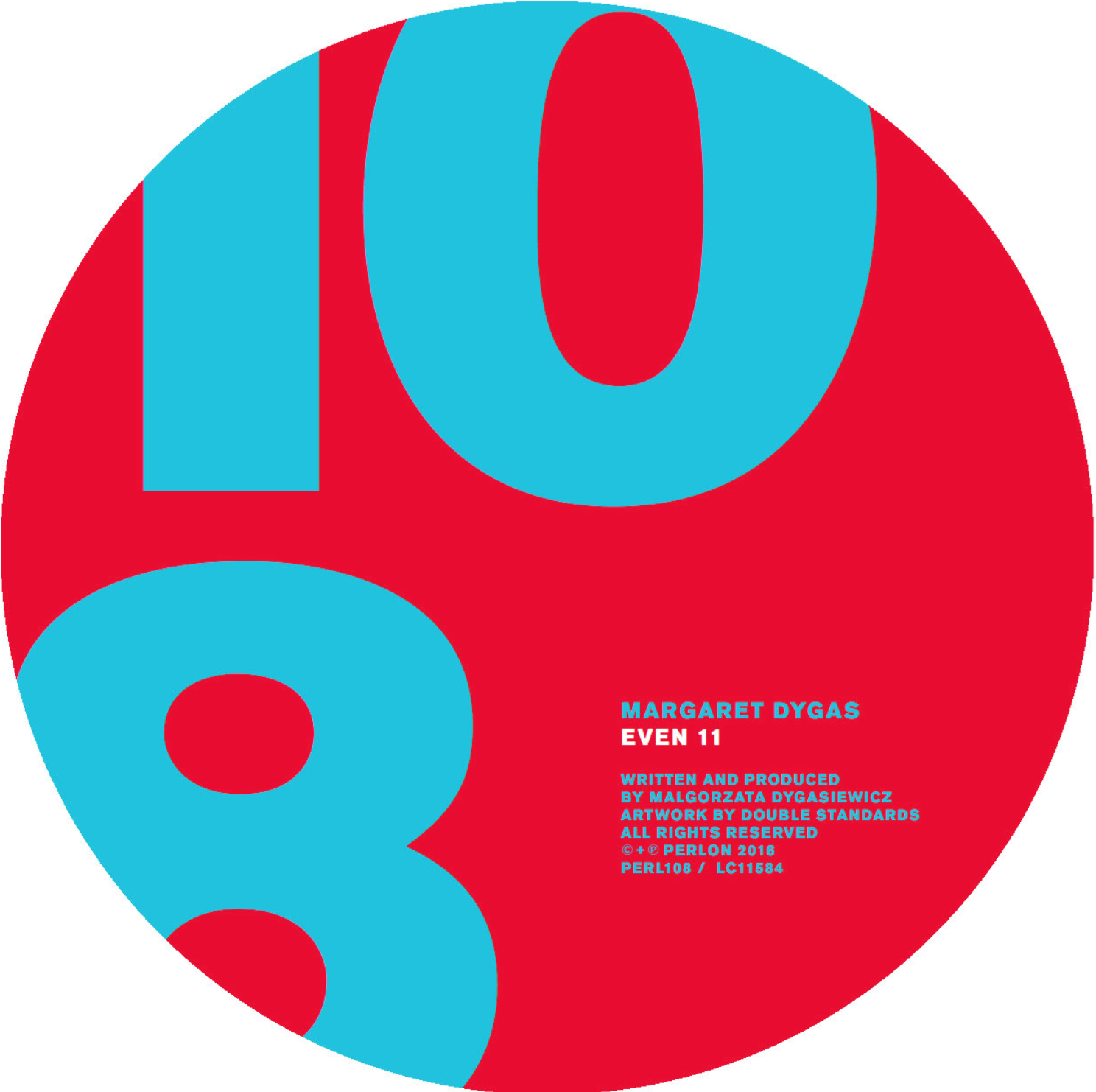Margaret Dygas Even 11
The Polish producer marks her return to Perlon with another splendid two-tracker.

With the impending releases of a Spacetravel eight-tracker and a new Margaret Dygas EP, it’s set to be a busy few months for Perlon. Up first is Dygas, the Poland-born, Berlin-based DJ-producer whose most recent release—a single track entitled “Popular Religions”—dropped towards the back end of last year on 50 Weapons as part of a split EP with France’s Bambounou. Even 11 will mark her third 12” on Zip and Markus Nikolai’s Frankfurt-born imprint, following on from 2014’s In Wood / That and 2009’s Invisible Circles. It is her 2011 self-titled full-length, however, for which she is most widely acknowledged.
Speaking broadly, it is possible to place works from Dygas’ discography into one of two categories: experimental and club. As with many producers, she has used the lengthier canvas of her LPs—most notably 2010’s How Do You Do? debut—to explore more avant-garde pastures, while the majority of her EPs (barring, perhaps, 2008’s See You Around) arrive with sufficient beats to make any dancefloor ignite. But as you work through the catalog, it becomes apparent that any such purported distinction becomes considerably less acute. 2009’s Invisible Circles is a good sonic representation of these two worlds blending, a consolidation that became even more apparent on 2014’s In Wood / That12”. While maintaining the same stripped-back, trippy voice with which she has become so strongly associated, Dygas continues the musical integration on the Even 11 release.
Side A—“Even 11”—kicks things off with a broken beat, united with a smooth set of sampled vocals that linger in the distance before fading away, replaced with a faint child’s yelp. This on-going trippy dialog comes and goes at different points for the duration of the cut. As the track continues, the intensity rises—progressively but considerably—as Dygas adds subtle layers of drums, transforming it from an experimental, abstract cut to something that would fit comfortably within the four walls of Panorama Bar. It would seem that her residency at the renowned Berlin institution certainly informs her work in the studio. The swirling concoction of drums and various other discreet sounds results in a brief but utterly absorbing point towards the end of the track, creating a moment of dazzling intensity laced with sporadic and unpredictable subtleties. The end of the intelligent though unquestionably practical production is marked by a deep and surging bassline, a much-needed addition to break the spell ignited by the track’s earlier progression.
“Wishing Well” is significantly warmer than the A-side. While hypnotic, the sound is solid and inviting—at times even soothing. The track begins with a deep and purposeful set of pulsating chords with dubby tones that loop for its entire duration. Laced over the top are various subtle sounds, beginning with a faint siren and a lonely piano key, while intermittent drum sequences play out in the forefront. As the drums fade away, the siren becomes increasingly emphatic, before once again disappearing into the background, only to return again some time later. Moments of calm are replaced by brief moments of frenzy, a progression supported by the addition of further sporadic drum and key sequences, a symbol, and thick reverb-wrapped percussion. The swirling siren—significantly sharper this time—becomes increasingly boisterous towards the end of the cut. Once again, this ongoing ever-intensifying exchange is brought to an end as each of the individual sounds becomes gradually more infrequent, leaving only the fading chords that signified the track’s origins.
Even 11 is nothing you wouldn’t expect from Dygas. It’s extremely well produced and fits comfortably within the sound aesthetic that she is steadily making her own. This release is likely to find its way into the collections of those fans of both her experimental and dancefloor-focused material.
Tracklisting:
A: Even 11
B: Wishing Well
Even 11 is due out May 9. Check out samples at Wordandsound.

